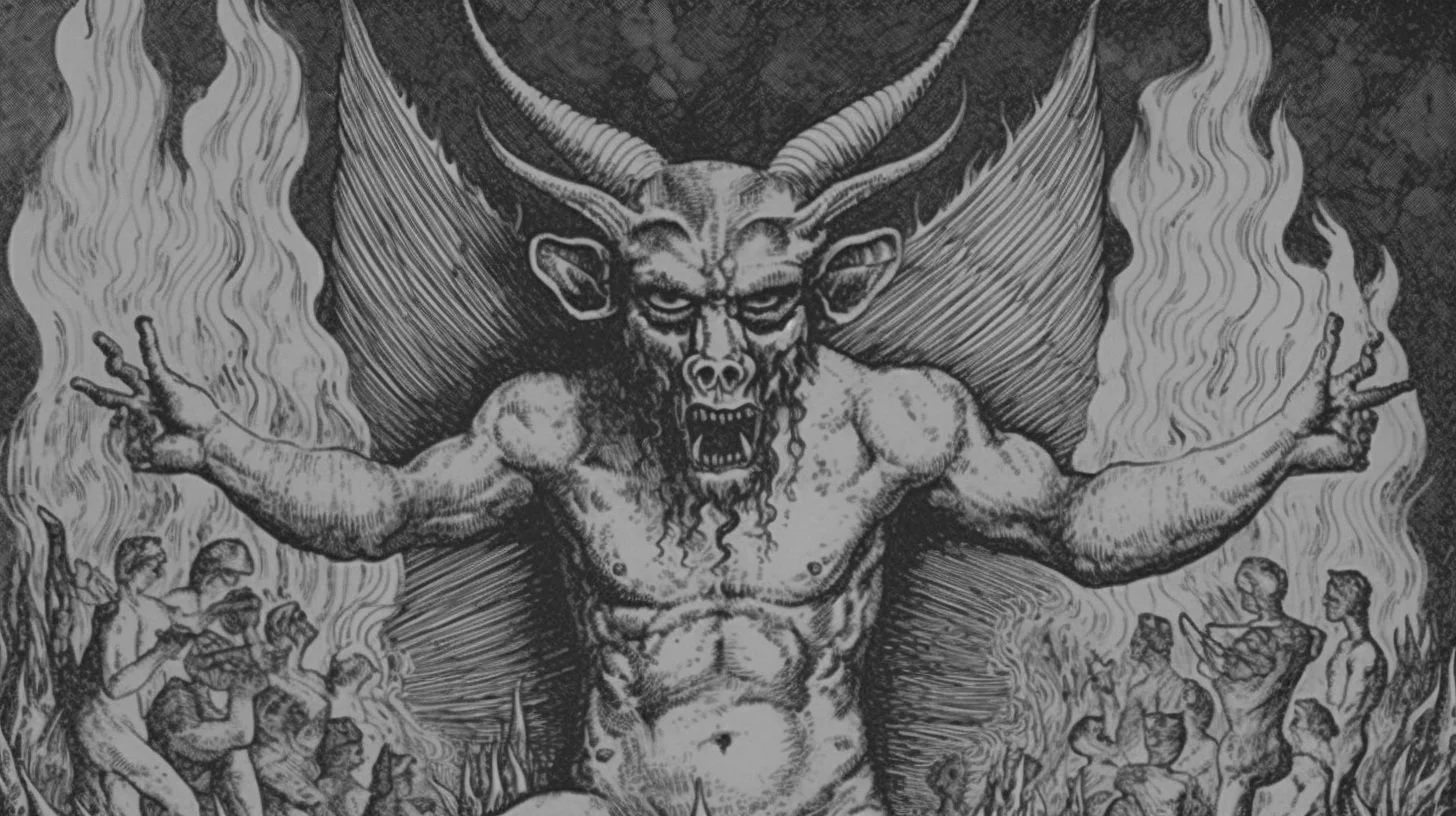END BOsses
Just as it’s hard to have good story without a compelling bad guy, it’s hard to design a good game without an end-boss. And humanity’s game is certainly not short on them! Here are some of the biggest, baddest bosses we need to defeat—or at least keep at bay—until we can figure out how to turn them into allies.
MOloch
Humanity likely has no deadlier enemy than Moloch. Moloch first originated in a particularly dark bible story about a power-obsessed cult who would sacrifice their own children in a burning effigy of a horned demon, in the belief it that it would reward them for their sacrifice with money, power and victory. Horrible stuff.
In modern times, Moloch has become synonymous with the wider idea of excessive sacrifice. A sports person who sacrifices their integrity by cheating to win. A CEO who cuts corners on environmental protections to boost their quarterly earnings. A politician who spreads lies about their opponents to get ahead… these are all examples of Molochian behaviour.
Moloch is a mindset that can infect any one of us. There also Molochian games too, which trap their players into dark bargains and destructive spirals through bad incentives.
The Moloch Trap
Consider the nuclear arms race of the 1950s: it’s not like the USA or the Soviet Union especially wanted to empty their coffers into their militaries; after all, that is taxpayer money that could be spent on keeping taxpayers happy. But they didn’t have much of a choice, because the game theory of the situation demanded it — anyone who didn’t would be left vulnerable to attack from the other side. And so, both nations got trapped in a race to the bottom, reactively building up bigger and bigger arsenals than the other guy until there were enough nukes to wipe out everyone on Earth many times over.
That’s Moloch’s trap: a negative-sum game that locks otherwise rational actors into harmful competitive spirals where no single can individually escape. It does this by trapping players in the following dilemma:
“I don’t want to do crappy thing [X], but my competitors will probably do [X] anyway, so I have to do it too, else I’m at a disadvantage”.
This is the mechanism that underlies so many of our biggest issues: environmental pollution, addictive technologies, intensive factory farming, over-deforestation, nuclear weapon proliferation, climate change, reckless AI development… annoying!
So Moloch is the main bad guy of our story right now, because it is what is stopping us humans from coordinating to solve many of our trickiest issues.
But tricky does not equal impossible! There have been many examples where we DID manage to break out of Moloch’s trap. For more on that, check out Win-Wins of history.
For a deeper dive on Moloch, check out the resources page. Scott Alexander’s Meditations on Moloch is especially recommended. Either way, just remember that Moloch sucks. It’s the demon-god of lose-lose games that turn even good guys into bad guys.
Which raises the question: what is its opposite? Is there a God of Win-Win? Why yes there is… and if you would like to get to know it, keep reading.
NORM
Who is Norm? Norm is the patron saint of Bureaucracy. He sucks. More on him later, I have other more urgent things to write.

